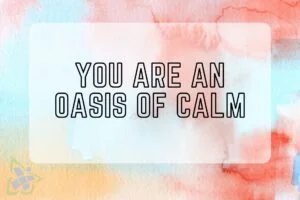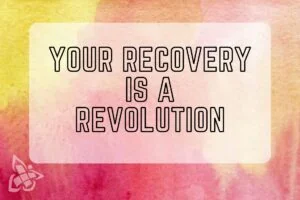The word on everybody’s lips is Covid-19 and with this comes the “new normal” – not just a changed way of life but the anxiety and uncertainty that seem part and parcel of this altered reality.
It may be worthwhile taking a leaf out of the old book. Which book? Well, the AA big book actually, that genius collection of words written by Bill W, the one that has helped so many people move from the chaos of active addiction into serenity. Who better to look to for guidance now than those who have experience in making it through tough times?
- First things first.
Acceptance is the key. It is never easy accepting things that feel uncomfortable or that deviate from our view of normal. Surrender is often seen as a weakness or failure when in fact it is the complete opposite. People in recovery from addiction have accepted that they cannot control the use of a substance and this acceptance allows them to move forward and onto better and healthier lives.
In the wake of the pandemic, we are all suddenly faced with a new reality that now includes extended periods of isolation, job losses and high levels of anxiety amongst other scenarios. If we look at things as they are, warts and all, we empower ourselves to move forward. It may be daunting at the onset but removing our rose-tinted glasses and clearly seeing the obstacles ahead allows us the opportunity to map a new course and navigate the terrain successfully.
- Check yourself before you wreck yourself.
Ever hear the saying that prevention is better than cure? True story and in order to prevent heading down a slippery slope we can take care of four states of being and in doing so prevent a long walk off a short pier. H.A.L.T. – Hungry, angry, lonely and tired. If you can master balancing these four states then you will function from a better space and allow yourself to make better choices.
Balance helps to prevent relapse in recovery and it can help to keep a level head in these ever-changing times.
Remember that self-care is not selfish and that your cup should run over. What is in the cup is for you and keeps you functioning at an optimal level, what runs over is for the people you love.
- I think I can, I think I can… I know I can.
Thomas the steam train repeats this little mantra as he chugs up the hill with his less-than-powerful engine. And every now and again he stops and wonders if he will ever make it up.
We stumble, we lose power and we sometimes want to give up. In recovery, this applies to one and all. There are days and then there are days but the secret lies in remembering that progress and not perfection is the objective. One shaky footstep in front of the other is what is required. Falling is mandatory but so is getting up.
As the littlest steam engine teaches young children that life is a forward motion and that you can do anything you set your mind to, it also serves as a valuable lesson to all of us that we are not perfect and that we can make it up that hill even if we have to gain some bumps and bruises along the way.
- Life on life’s terms.
There is no way around it over it or under it, the only way is through. We cannot control what life throws at us but we can choose how we face the challenge.
In recovery, people must learn to cope with the sometimes devastating blows that life delivers without the use of substances to numb them and so too in this pandemic, we need to learn to walk alongside difficult situations instead of running from them.
Kahlil Gibran, the author of the prophet says “There can be no joy without sorrow” and if we think about this we may realise that we most enjoy the sunshine after a few days of heavy rain.
Resilience in the face of current adversity will serve us all well now and in the future beyond this pandemic.
- Your power lies in right now.
In early recovery people wonder if they will succeed, the magnitude of long-term sobriety seems monumental and it may be overwhelming. They are motivated to adopt the view of “one day at a time” because this keeps them in the present and really helps when it comes to dealing with life’s issues as and when they occur instead of trying to predict what might happen.
We cannot possibly know the duration or the exact impact of the pandemic on our lives in the future but what we can do is to stay focused and continue to do the next right thing for ourselves and those around us.
You may also want to consider the question; how do you eat an elephant? One bite at a time.
- You can only keep what you have by giving it away.
It goes without saying that those on the road to recovery from addiction probably found the path with directions from someone else. Service to others is a key principle in recovery and can help during this pandemic too.
Sharing the pain and experiences of our pasts or even current circumstance may serve as a survival guide for someone else in the future. Many people are struggling with anxiety or loneliness and a host of different feelings and a very simple way to be of service is to ask someone how they are doing. Lend an ear. Nobody has all the answers but what we do have is the capacity to be present and to help another human being feel heard.
When we take the time to share and hold space for another we not only help them but keep sight of our own goals at the same time.
- Gratitude turns what we have into enough – anonymous.
It is very easy to get lost in an “oh poor me” state of mind. Because yes, sometimes life is tough and hands us lemons when what we really want is lemonade. And a lot of the time it’s just easier to complain about all that’s wrong with the world instead of seeing what’s right.
Easier does not always equal better. When you start to really dig deep and take stock of all the things you have to be grateful for you will begin to see that it is a powerful catalyst for happiness.
Cultivate an attitude of gratitude and make a list of all the things you have to be grateful for and review that list daily, you will be surprised at how many more things you’ll find to add when you do this. Pay it forward, tell someone else what you appreciate about them and why you are grateful for them.
- To truly live is an awfully big adventure.
A house without a solid foundation is bound to blow away with the slightest of storms. Those in recovery from addiction understand that taking care of the small things now helps to take care of the big things in the long run. Laying a solid foundation strengthens resolve and resilience.
We would do well, in the grips of this Covid catastrophe to turn inward and find all of the bits and pieces that we feel are lacking or that hold us back and to use this time to work on them. That may mean working on a relationship making more time for your creative side or learning new forms of meditation.
- Better together.
Addiction and pandemics share a common thread of disconnection and isolation, neither of which serve any human being well on an emotional level. We all need community and a feeling of togetherness. Innovative technology has made it possible for us all to remain connected in some way during this time – whether it’s as simple as a phone call or text message or video chat. Keep connected to your support base or your tribe. We are stronger together.
- Normal who?
Normal is in the eye of the beholder. It is as close to a crime as one can find, this obsession with normal. The pursuit of normalcy has put out the fire and dampened the scene on so many lives. The old saying goes “why strive to fit in when you were born to stand out”. When we allow ourselves to embrace the pieces that we are ashamed of we open ourselves up to growth.
Normal is as normal does and as long as you are taking care of yourself, striving towards a healthier existence and remaining mindful then you are doing just fine.

12 step programs are the widely accepted approach to treating alcohol and various other…

Addictions treatment has become a priority for public health policy in the past few decades. …

Are you looking for drug addiction advice? Addiction to alcohol and other drugs is common…
COVID-19 Lockdown
The COVID-19 lockdown ban on the sale of alcohol and cigarettes and the restrictions on movement have again highlighted the burden of addiction in South Africa, the extent to which people with addictions are affected, the ignorance about addiction as a disease and the prevailing myths on a person’s readiness for successful treatment.
According to Gareth Carter, an internationally accredited addiction counsellor and founder of WeDoRecover, an organisation offering screening, assessment and intake coordination services to addiction treatment and psychiatric centres in a number of countries including South Africa, saw a huge increase in emergency admissions of people experiencing mild to severe withdrawal symptoms since the start of the lockdown. For these patients, restricted access to addictive substances forced them into withdrawal, thereby acknowledging that they were in trouble much earlier than would have been the case in the pre-COVID world.
While the government has been slammed for not foreseeing or understanding the potential crisis it would unleash in a country with one of the highest addiction rates in the world, the question is whether earlier intervention by family and healthcare professionals and a thorough understanding of addiction as a chronic disease affecting the brain could have helped.
The answer is a resounding yes, says Carter. He points out that the two biggest obstacles in getting people into treatment are the beliefs that addiction is a self-inflicted condition and that addicts cannot be successfully treated unless they voluntarily agree to go into rehab. These myths coupled with the stigma around addiction make rapid access to treatment extremely difficult. This results in most patients only presenting at rehab facilities when they hit rock bottom or are forced by the courts into treatment. Carter says that his job work focusses on helping the families to raise rock bottom, ensuring the patient gets treatment sooner, thereby causing less damage to themselves and those around them.
Addiction is a brain disease
“Over the years, clinical research has repeatedly that the assumption that addiction is caused by the voluntary decision of an individual to continue the use of an addictive substance despite the negative consequences is wrong and that it is indeed a brain disease that should be regarded as a chronic illness,” Carter observes.
“We can see on brain scans that the structure and function of brains of SUD (Substance Use Disorder) patients are different, which like any other chronic disease such as diabetes, hypertension or asthma require medical intervention. It is therefore imperative that both the person, their loved ones and healthcare professionals understand that it is an illness and that the consequences of leaving it untreated could be potentially fatal,” explains Carter.
“If families understand that they are dealing with a sick person that needs treatment they can start with the help of an interventionist to raise the patients rock bottom and get them into rehab. Once the patients understand that they’re sick and not bad they can begin to structure their lives around the illness and it’s easier for them to assume responsibility for their recovery.”
Believing that treatment can only work if the person voluntarily commits to rehabilitation is also a fallacy. The very nature of addiction makes it extremely difficult for an addict to decide to give something up that has taken over their whole lives.
“Research has undeniably shown that external pressure helps to get people into treatment and keep them in treatment and actually enhances the outcome of treatment, so outcomes are better with pressure from family, friends, employers and even the courts.
“The majority of SUD patients deny they have a problem and deny help. From their perspective accessing treatment is totally unnecessary. Therefore, it is vital to work with the family and healthcare professionals to find the leverage and pressure to force them into treatment,” Carter explains.
Just as with any other chronic disease, adhering to addiction treatment regimens can take time and relapses do occour.
“Adherence to treatment and rates of relapse for all four of these chronic illnesses; addiction, diabetes, hypertension and asthma are similar, so the belief that addiction treatment is generally unsuccessful is incorrect and seems more associated stigma than reality”, says Carter. “Due to the changes addiction cause to the brain pathways, treating the disease is a prolonged process that needs sustained abstinence and adherence to therapy, as is the case with any other chronic disease. For all patients, this can be daunting due to the behavioural lifestyle changes required. With support from family, healthcare professionals and employers, the success rate is increased,” Carter concludes.
About WeDoRecover.com
WeDoRecover.com was founded by Gareth Carter in 2009 and handles enquiries and intake coordination for the best private addiction rehab centres and psychiatric clinics in South Africa as well as some in the UK and Thailand. It is a one-stop service which provides advice on all aspects of addiction, pre-admission crisis, treatment, costs and all other issues the patient and family need answers to. For more information, e: [email protected]
The National Treatment Helpline for WeDoRecover.com in South Africa is 081 444 7000 and in the UK 0800 955 4357.